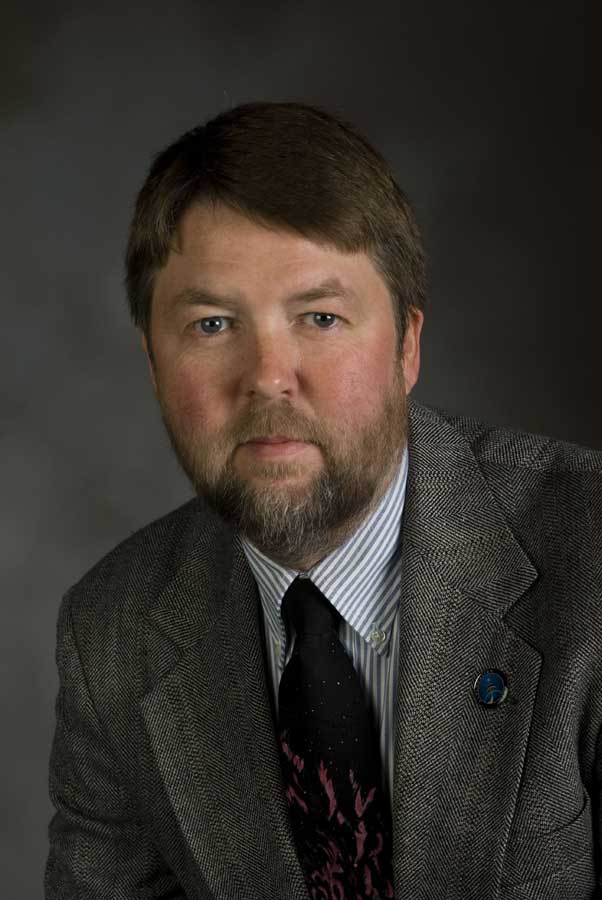Christopher Hall named aerospace and ocean engineering department head

Christopher Hall, a member of the Department of Aerospace and Ocean Engineering in Virginia Tech's College of Engineering since 1997, has been named its new department head.
Hall has served as the acting department head since 2006 succeeding Robert Walters who now serves as Virginia Tech’s Vice President for Research.
The college conducted a national competitive search to fill the position during the 2007-08 academic year.
"I am pleased to have this opportunity to serve my colleagues in this role. This department has a long and distinguished history of excellence in both of its disciplines. Aerospace engineering and ocean engineering are fields that continue to excite young people, that present meaningful engineering challenges, and that lead to careers with the potential to make a difference in the future of our nation," Hall said.
“We are extremely pleased Dr. Hall has accepted the position here at Virginia Tech. He emerged as the top candidate for this position out of a very strong pool, and we at Virginia Tech feel very fortunate to be able to retain his talents in academic administration,” said Richard C. Benson, dean of the college.
“Our [aerospace and ocean engineering] department continues to gain in its stature, due to its pre-eminent work in aerodynamics, hydrodynamics, structural mechanics, dynamics and control, and multidisciplinary design optimization,” Benson added. “Dr. Hall’s experience will be a great asset to finding additional opportunities to increase the strength and breadth of its interdisciplinary research, and our [aerospace and ocean engineering] alumni enjoy working with him.”
Hall joined Virginia Tech as an assistant professor of aerospace and ocean engineering. Within three years, he was promoted to associate professor, and became a full professor in 2003. He has won several awards related to his teaching.
From 1992 until 1997 he was an assistant professor of aerospace and systems engineering at the Air Force Institute of Technology at the Wright-Patterson Air Force Base, Dayton, Ohio. His research focuses on spacecraft dynamics and control, and he has advised many student spacecraft design projects leading to flights on sounding rockets, high-altitude balloons, and research aircraft platforms.
He has received numerous honors including: election to Fellow of the American Astronautical Society in 2005; a Dean’s Award for Excellence in teaching in 2001; a Best Paper Award from the American Institute of Aeronautics and Astronautics in 1998; the Ralph E. Powe Junior Faculty Enhancement Award in 1998; the Ralph L. Teetor Award from the Society of Automotive Engineers in 1997; and an Air Force Meritorious Service Medal in 1994.
The aerospace and ocean engineering department at Virginia Tech is a unique blend of two disciplines that takes advantage of commonality in the analysis and design of aerospace and ocean vehicles. Undergraduate and graduate degrees are offered in both disciplines. The department has 17 faculty with a yearly graduation rate of some 100 bachelor's, 25 master's and 15 doctorate degrees. The department has extensive facilities including world-class wind-tunnels, water tunnels, structural test equipment, high-performance computer systems, and state-of-the-art spacecraft simulators



.jpg.transform/m-medium/image.jpg)
